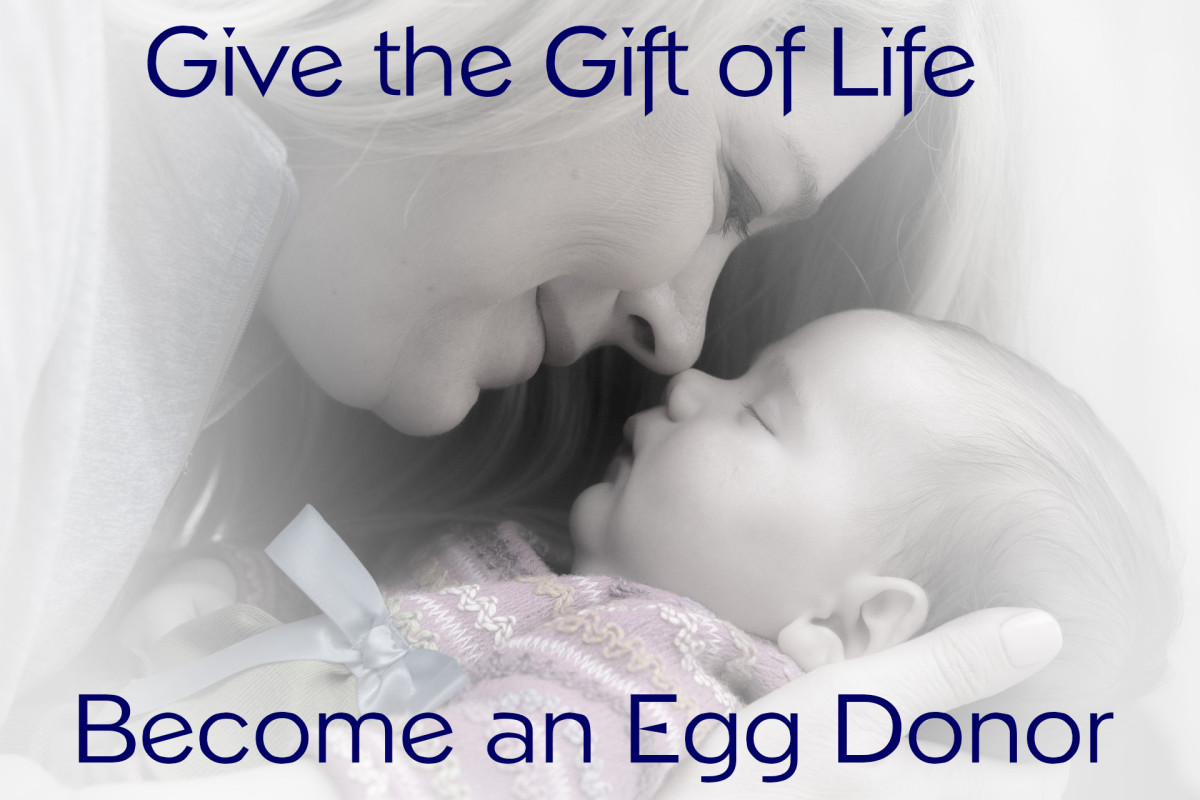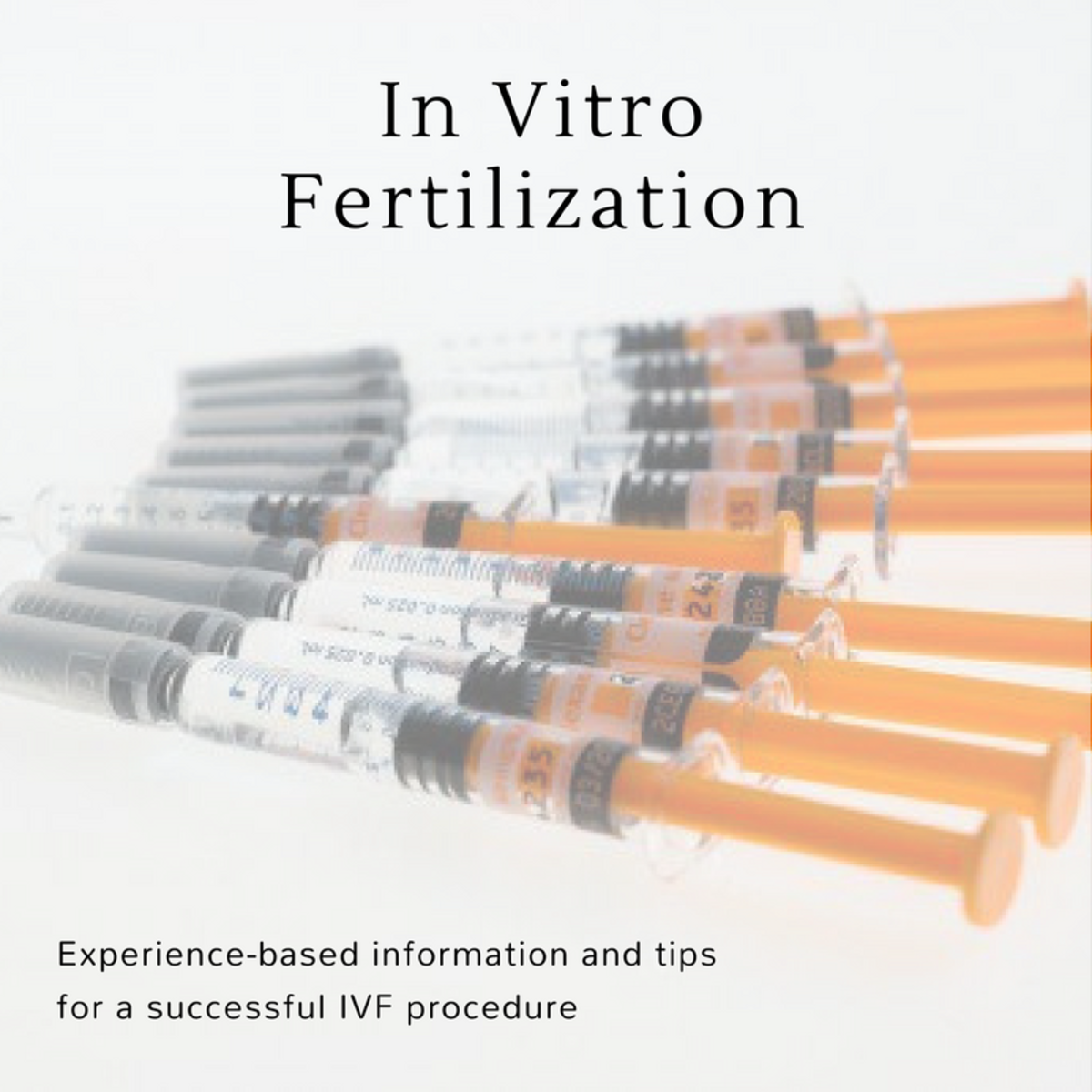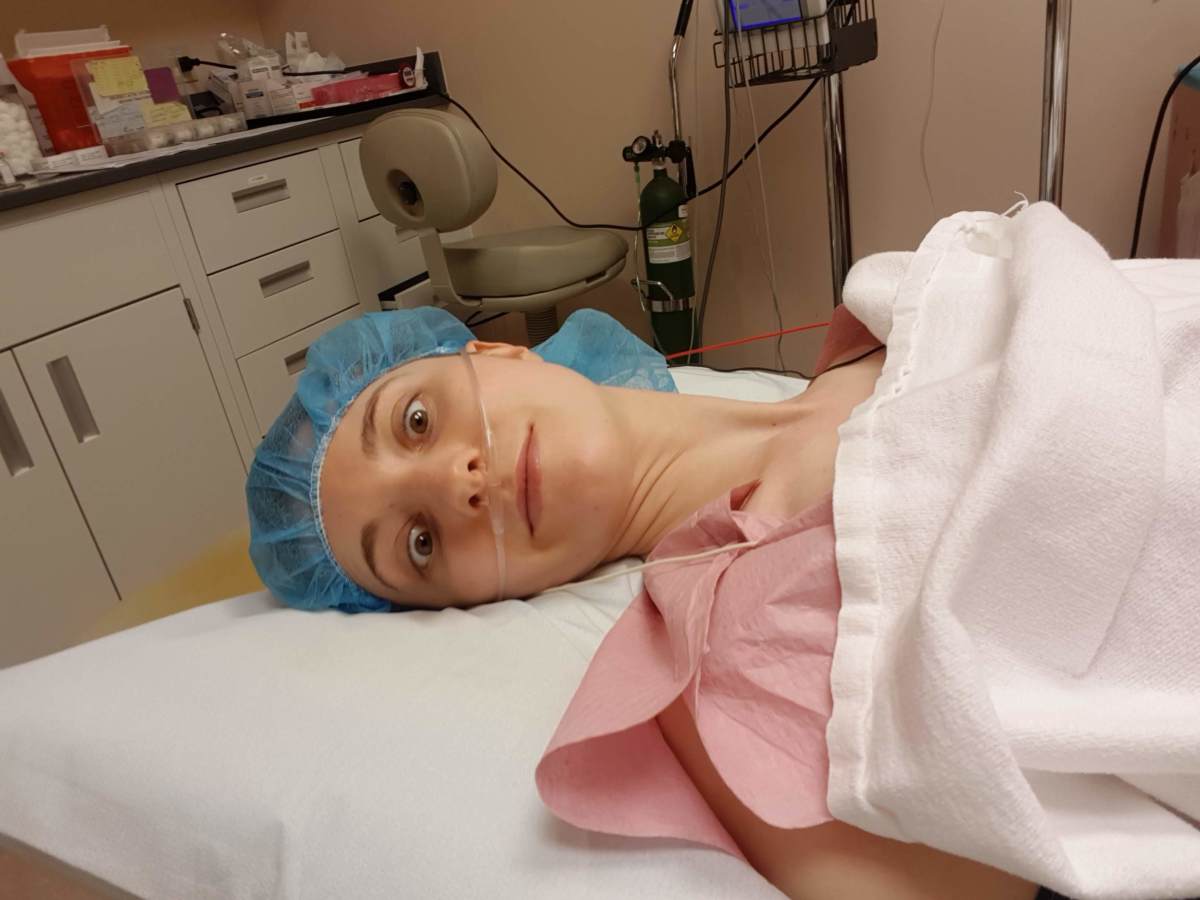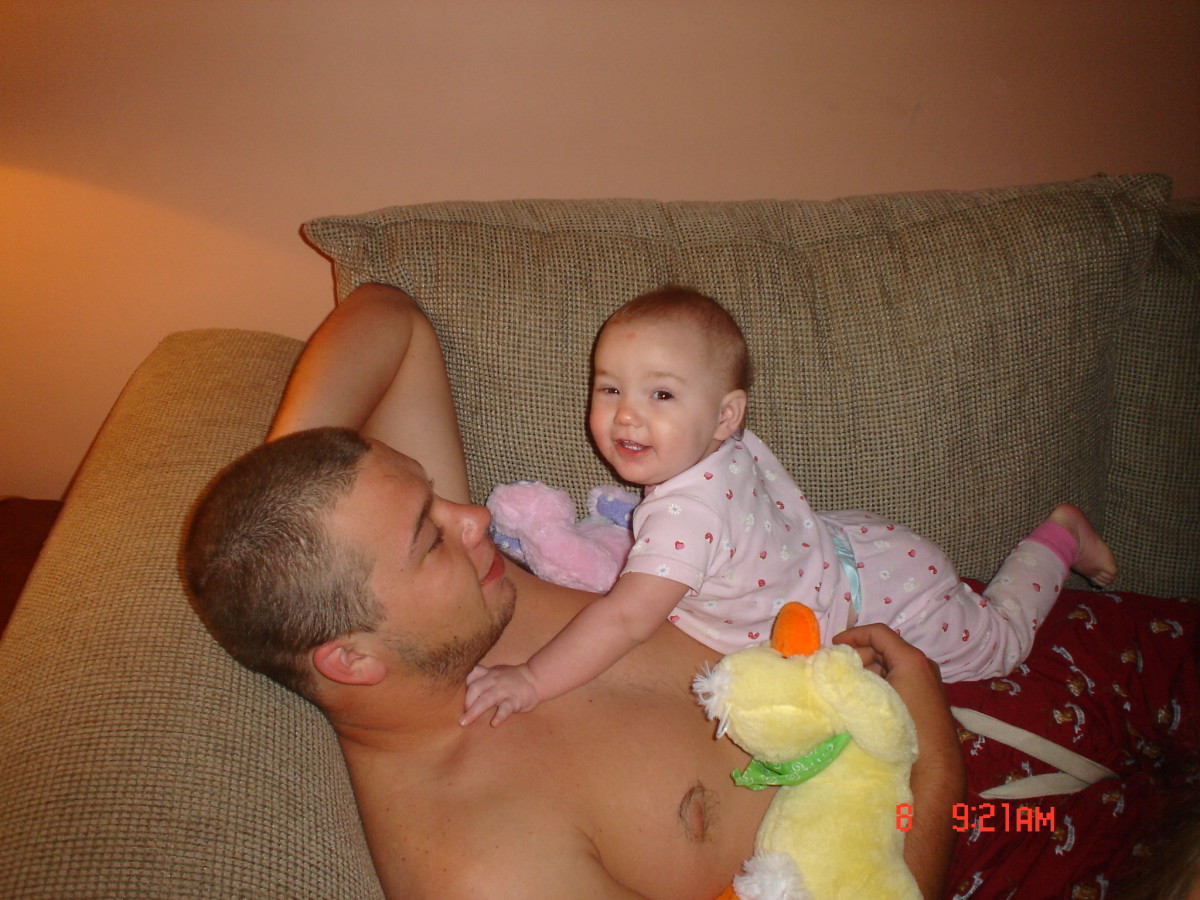Becoming an Egg Donor - Everything You Want to Know about the Egg Donation Process
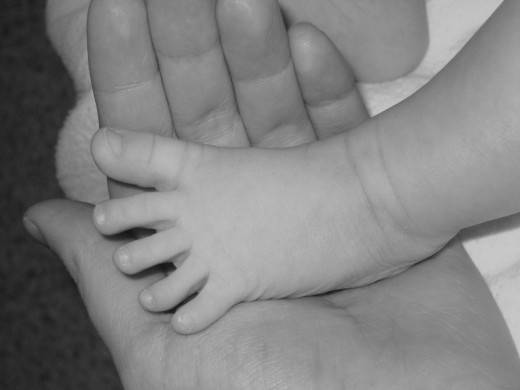
About the Author
I have donated my eggs twice and have worked for an egg donation agency. I was interviewed by Inside Edition regarding my experience as an egg donor. I will try my best to provide you with complete, accurate and honest information. I'm happy to answer any questions you may have, just leave a comment below!
Egg donation is fairly new to the medical community. It is, however, becoming more common. With more couples waiting until later to start their families and alternative family situations becoming more common, more and more couples are turning to fertility treatments.
I want to give anyone considering, or anyone who is simply curious about the egg donation process, a detailed explanation of how it works and what it entails without getting too technical or wordy. I have donated my eggs twice and I have worked for an egg donation agency. From the perspective of having done it, I'm going to describe the entire egg donation process, from start to finish.

Why use a donor?
In certain cases, an infertile couple may be able to use a donor's eggs. Using eggs from a donor allows them to carry and give birth.
Unfortunately, it's true what they say about the biological clock. The older women get, the more the quality of their eggs diminishes. Sometime around 40, fertility in woman drops dramatically[1]. The lower the quality of her eggs, the more difficult it is to conceive and more likely for the babies to have health problems or birth defects. When the Doctor suspects a couple is infertile due to the quality of eggs, they may suggest using eggs from a donor.
Woman who have a condition called premature ovarian failure, where menopause begins before the age of 40, may choose to use a donor's eggs.
Another reason someone may choose to use an egg donor is if they have genetic disorders that could be passed on to the children.
Alternative families and single parents may also choose to use a donor's eggs and/or a surrogate.
Luckily, there are options for people in situations such as these.
Egg Donor Requirements
Age Requirement
For most agencies, a donor must be between the ages of 18-29 years old. This is a requirement because of the issue of egg quality.
Health Requirements
An eligible donor must be in overall good health. She must be a non-smoker and only drink occasionally or not at all. Donors are reviewed on a case-by-case basis. The Donor Agency and the prospective parents will look closely at the donor’s personal health and family health history before selecting a donor and it will have a huge impact on whether or not she will be chosen or even be eligible to donate at all.
It is recommended that woman who have recently been pregnant wait six months after giving birth or having stopped breast feeding before doing an egg donation cycle.
Genetic Requirements
Genetics play a huge role when it comes to donor selection. Prospective parents want donors with similar family heritage to them. Looks and personality also come into the equation. Expect to be hammered with all kinds of questions regarding family health and heritage.
Commitment and Availability
If you’re considering egg donation, be prepared to go through a lengthy process. If this is your first time donating, it could easily take 3 months or more, plus more time before you are chosen by prospective parents.
I would not recommend egg donation for someone who wants to make a quick buck. You need to have a flexible schedule so that you can make a number of doctor's visits. Toward the end of the donation cycle, you will be seeing the doctor every day as they need to closely monitor how your body is progressing and reacting to the medications.
The donor must be able to self-administer shots. The needles that are used have a very small gauge and it's not very painful except some stinging when the medication is injected. Despite these facts, some people have a very hard time with needles. An egg donor has to commit to giving herself shots everyday for about a month, sometimes twice a day.

Egg Donation Compensation
The average compensation for a first time donor is $5,000. Donors may be compensated more if they have donated before, is a proven donor, or has extraordinary qualities.
First time donors are paid less than proven donors because it is unknown how the first time donor will respond to the medications and treatments or if they will be able to successfully retrieve any eggs. If you go through the entire process, but the doctor's are unable to retrieve any eggs from you, the prospective parents are still required to compensate you. It's more of a risk for the prospective parents. That is why, if you successfully donate your eggs the first time around, your compensation will increase if you decide to donate again. It is not uncommon for your pay to increase $1,000 each time you donate.
How to Become an Egg Donor

What Prospective Parents Look for in an Egg Donor
Prospective parents most often look for people that are similar to them. Family heritage is extremely important to prospective parents. If the family is Jewish, they will want a donor with Jewish heritage. If the family is Asian, they will want an Asian donor.
After they narrow it down to the donors that have a similar family heritage, they will look closely at the donor’s medical history, including that of the donor’s family. This is understandable as they want to have healthy, happy babies.
If the donor’s health history looks good, the prospective parents will then look at the donor’s academics and personality. After taking it all into consideration, the parents will then select a donor that is the best match for them.
I have broken down how to become an egg donor into 6 steps, which are:
- Apply to an agency,
- A family chooses you as their donor,
- A contract is signed between the donor and prospective parents,
- The egg donation medical process begins,
- The eggs are retrieved, and
- Recovery from an egg donation
1. Apply to an Agency
Once you've decided to donate your eggs, there are number of agencies to choose from. Look to see if they have contact information easily available, if they answer your questions or have someone available to answer them, and if they have contacts with Doctors, Lawyers and other specialists. You should be able to find an agency that will give you $5,000 minimum compensation for first time donors.
Once you choose an agency you'd like to worth with, you will have to fill out an online application and submit a picture. A Case Manager from the agency will review your initial application and then call you to explain the process in more detail and answer any questions you might have. If everything seems to be a good fit, the agency will really start digging into your health and family history.
The donor agency will ask you about your heritage on both sides (it’s unlikely you will be able to donate if you don’t have complete health and heritage information from both of your biological parents). They will ask for information about all of your family members including your grandparents. They will want to know if they are still living, how old they are/were when the passed away, the cause if they have passed away, any health issues they might have/have had or medications they might take/have taken. Once the health history and family heritage details have been completed, you will be submitted to the agency’s database of donors, where prospective parents will browse and choose their donors, much like a catalogue.
At some point along the way, the donor will be asked to submit additional pictures and information, such as: if they have a college degree, GPA, hobbies and an overview of their personality.
2. A Family Selects You as Their Donor
Once an egg donor is selected, the process can get underway. At this point, the egg donor will need to complete a medical, genetic and psychological screening. The agency will work with specialists in these areas that will contact the donors and build reports from the information provided by the donor.
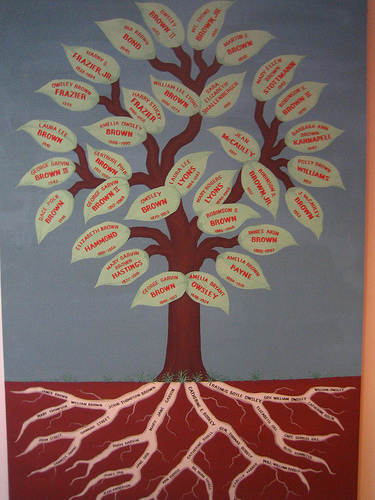
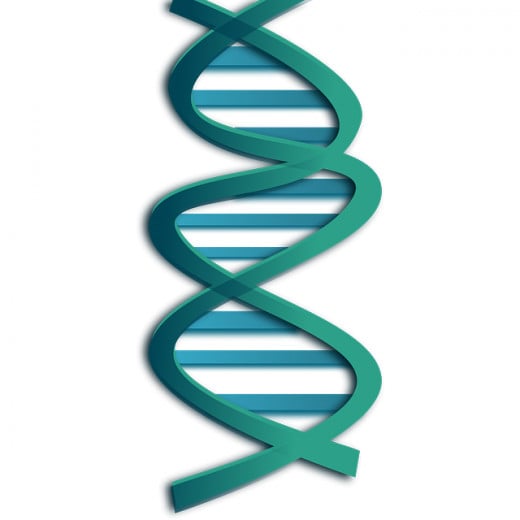
The Genetic Screening
During the genetic screening, a geneticist will contact the donor and ask very specific questions pertaining to donor’s personal health and family history. Based on the information gathered, the geneticist will then build a complete map of the donor’s genetics and submit it to the agency. The agency will pass the information on to the fertility clinic that will be working with the donor.The geneticist will recommend specific genetic tests to be done, depending on the family history of the donor.
The Medical Screening
At the medical exam, blood will be drawn to test hormone levels. The donor will also provide a urine sample for drug testing. Most likely, blood will be drawn for the genetic testing at this point as well, which could mean the lab drawing up to 14 viles of blood or more. The clinic will complete a health history for the donor. The will complete a vaginal exam and a screening for infectious diseases.They will make sure that the donor is healthy and a good candidate for egg donation.
The Psychological Screening
For the psychological screening, the donor will be asked to complete an MMPI or other similar, extensive, personality test. A psychologist will contact the donor and have on average an hour long conversation. The psychologist will ask about the donor's relationships with her family, how she would describe her personality and how she feels about donating her eggs. After the conversation and the personality test are complete, the psychologist will create a complete psychological and personality report of the donor.
An important aspect of the psychological screening is to make sure that the donor has a healthy attitude about donating her eggs. The hope is that by using the donor’s eggs, the prospective parents will be able to get pregnant and have a baby. Does the donor feel that the baby will be her baby? Or does she feel that the baby is not hers, but the parents to whom she donated? Will she regret the decision once she knows that a baby was born using her eggs? Will she regret never meeting or seeing the baby? These are tough but important questions. Egg donation can be very emotional.
Throughout the screenings, the agency acts as the liaison between the donor and the prospective parents.

The Legalities of Egg Donation
3. A contract is signed between the donor and prospective parents: Once the donor is cleared by the screenings described above, the agency will hire a lawyer to draft a contract between the prospective parents and the egg donor.
Egg donation is a fairly new occurrence when it comes to legalities and there can be some tricky issues, such as the donor waving all parental rights or what to do with extra eggs that aren't used in the embryo transfer. They will try to cover as many details and what if situations as possible in the contract.
The contract covers how, when and where the donor will be compensated. It provides that the prospective parents will cover all the medical bills of the egg donor. It also allows the egg donor some choices as to what she wants to do with any extra eggs that are retrieved. She can either let the prospective parents decide what to do with the eggs, let the prospective parents donate the extra eggs to another infertile couple, donate the extra eggs to research, or if she would like the extra eggs to be discarded.
An egg donation contract should clearly outline the future relationship between the egg donor and the prospective parents. This is especially important if the prospective parents have decided to use a friend or relative as a donor. In most cases, the donation will be anonymous and the donor will waive parental rights forever.
A lawyer will be provided to the egg donor if any issues arise during the egg donation process. The cost of the lawyer will be covered by the prospective parents. Once the contracts are drafted, the donor and the prospective parents review and sign the contract and then submit it to the agency.
Once all the screenings are complete and approved, the actual physical procedure of egg donation can begin.
The Egg Donation Medical Procedure
4. The egg donation medical process begins: Once the donor screenings are complete and contracts are signed, it’s time for the more complicated, medical portion of the egg donation process. This process can take up to 6 weeks. I will try to keep the medical garble to a minimum. Donors: Get ready for a lot of shots, blood tests and vaginal ultrasounds.
Synchronizing Cycles
The first step is to get the recipient (whoever will be carrying the baby) and the egg donor’s cycles synced. This involves putting the donor on birth control for a few weeks until the donor’s and the recipient's cycles are on the same schedule. The donor may also have to start administering shots that contain a medication that suppresses ovulation at the same time she is using the birth control. Exactly when and for how long she will be on these medications is case specific.
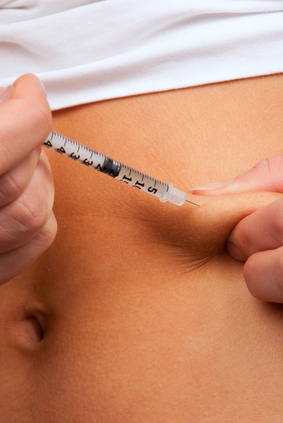
Self-Administering Shots
I know that giving yourself shots sounds freaky, but it’s easier than it sounds. The needles used are the smallest gage available. Your nurse practitioner and coordinator will teach you how to administer the shots. In short, you fill the needle with the dosage of medicine directed by your nurse. Make sure everything is clean and sanitized, you don’t want to give yourself an infection. Pinch a small area of your stomach (your nurse will show you more specifically the areas where you can administer the shots) and quickly and firmly push the needle in and inject the medication. Mostly, the doses of medication are small and painless. There is one medication that stings as it is injected. You can ice the area to numb it before giving yourself the shot if you’re nervous about it.
Blood Tests and Ultrasounds
Once the donor has started taking the medications, she will have to attend frequent appointments at the clinic to monitor progress. Blood tests and vaginal ultrasounds become routine.
The donor will have to take a number of blood tests throughout the process. By analyzing the hormones in the blood, the medical staff can tell exactly where the donor's body is in her cycle.Timing is very important in the egg donation process, so it's important that the medical staff keep a close eye on how the donor is progressing with the medications.
Along with the blood tests, the donor will be given frequent vaginal ultrasounds. This way, the Doctor can see the ovaries and the follicles inside the ovaries to make sure the maturation of the eggs is on schedule.
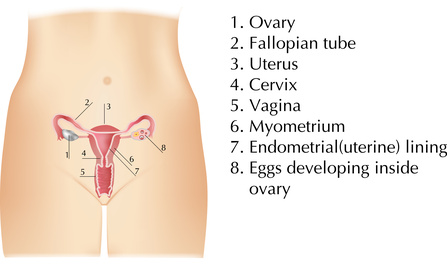
Ovarian Stimulating Hormones
After the donor's and recipient's cycles are synced, the donor will start taking medication that stimulates the ovaries to grow more follicles than it would during a normal cycle. Follicles are in the ovaries and are where the eggs are held and where they mature.
As you can see in the picture above, during a normal cycle, only a few follicles develop at a time and only one mature egg is released. The hormone that causes the follicles to develop is called the follicle stimulating hormone or FSH. The level of this hormone will be tested frequently through blood tests during the egg donation process.
These ovarian stimulating medications are taken through injections. They stimulate the ovaries to develop more follicles and mature eggs than they would during a normal cycle. Through vaginal ultrasound, the doctor can see and count the follicles growing the ovaries and estimate how many eggs they will be able to retrieve.
At this point in the process, the donor will be administering shots two times a day. It's important to stay consistent about the time the medications are taken. You do this for about 12 days, plus or minus a few, depending on how your body reacts and progresses with the medications.
Frequent Doctor Appointments
When the donor starts taking the ovarian stimulating medicines, she will have to make trips to the doctor’s office every couple of days to monitor progress through blood tests and vaginal ultrasounds. The medical staff will look at hormone levels in the blood and the doctor will look at the ovaries through ultrasound to measure the size and count the number of follicles.
The last few days, as the time gets closer for the egg retrieval, the doctor will want to see the donor every day. By counting and measuring the follicles in the ovaries, the doctor can determine if the eggs are fully mature and ready to be retrieved.
Symptoms during the Last Days of the Egg Donation Process
As the time gets closer for the egg retrieval, the donor will likely experience symptoms similar to that of her menstrual cycle. Because the ovaries are growing more eggs than they would in a normal cycle, most donors will experience bloating and possibly light cramping. If the donor is experiencing moderate abdominal pain or more, the doctor may choose to cancel the cycle in order to avoid more serious complications.
It's important that the donor take precautions at this time. Heavy exercise and lifting should be avoided. Because the ovaries are fuller than normal, these activities could cause the ovaries to twist which would require emergency surgery.
Mood swings and fatigue are also common at this point in the process. Stay relaxed and comfortable as much as possible.
Ultrasound Video of an Egg Retrieval
5. The Egg Retrieval
When exactly the egg retrieval is performed dependd on how your body reacts to the medicines and your hormone levels. You will be closely monitored and the dosage of your medicines adjusted according to your body's needs.
When the follicles have fully developed, the donor takes a medication called hCG or human Chorionic Gonadotropin. This is taken the day before the egg retrieval. It helps the eggs to separate from the follicle walls. The timing of this injection is very important. Taking hCG too early or too late will make the egg unretrievable, causing a failed cycle.
Approximately 36 hours after taking the hCG shot, the egg retrieval will be performed. It is an outpatient procedure, oftentimes performed at the doctor's office or fertility clinic. The donor will be put under local anesthesia. The doctor goes through the vagina with a long aspiration needle and an ultrasound device so that he can see the ovaries. The doctor then sucks the fluid out of each developed follicle, which is where the eggs are. The procedure itself takes less than half an hour.
Shortly after the donor wakes up from the anesthesia, she is allowed to go. In most cases, the entire retrieval process only takes a few hours for the donor.
The Retrieved Eggs Are Fertilized
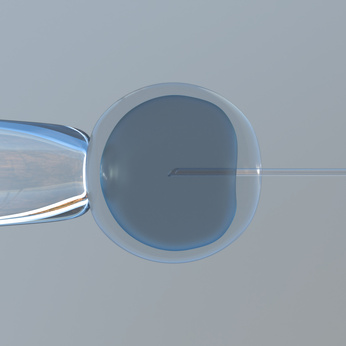
After the Eggs Are Harvested
A good number of egg retrieved during an egg retrieval is about 12. The harvested eggs are then mixed with the partner’s or donor’s sperm and are grown for a few days into embryos. Two to four embryos are then transferred to the uterus of the recipient in hopes that at least one of them will attach. This is why twins or multiples are very common when using IVF treatments. If any of the embryos attach, the recipient will be pregnant.
The extra embryos or eggs are frozen. They will either be used again later by the same couple if they want more children or for some reason the first pregnancy was not successful, donated to another infertile couple, donated to research, or discarded.
6. Recovery from an Egg Donation
Recovery from an egg donation tends to be fairly easy. You will feel tired and bloated for a few days, but a lot of donors feel good enough to go back to work a day or two after the retrieval.
There are some precautions a donor should take after the egg donation. Your stomach will be a little tender. You will be sensitive to bumps in the road and sharp movements. You need to take special care not to lift heavy objects or exercise. These activities can cause stress on your ovaries or even cause a twisted ovary, which could require surgery. You should be clearly coached on self-care after a retrieval and what to do if you need medical attention.
The doctor will likely want to see you again a week or two after the donation to make sure your recovery is going smoothly.
The Risks of Egg Donation
Egg donation is still a fairly new procedure. For this reason, there has not been a lot of research done regarding the effects of egg donation. The long-term effects are especially unknown. It could be decades before these risks are apparent. Some known, short-term, risks of egg donation are:
- Bleeding during recovery
- Ovarian Hyperstimulation Syndrome (OHSS): OHSS occurs when the ovaries are overstimulated. Usually the cases of OHSS are mild but in some cases they can be severe. Symptoms include abdominal pain, bloating, and weight gain[2].The most severe cases of OHSS are life threatening.
- Stinging at the injection site, nausea, headaches, mood swings, and other symptoms similar to a menstrual cycle
- Bloating before and after the egg retrieval
Before donate you eggs, please be sure to talk to your fertility specialist about all the potential risks and complications.
Can You Become an Egg Donor?
It's Take Time and Commitment
You need to be available and flexible for a lot of appointments. You should have a flexible schedule because dates and appointments are confirmed as you go along. Toward the end of the cycle, you'll be going to doctor appointments every day. You'll know about when you will have the egg retrieval, but you won't know the exact date and time until a few days beforehand.
As an egg donor, you need to be committed. The prospective parents are investing a lot of money and hope in you and it's important that you follow through on your agreement with them. It can be very frustrating and disappointing to hopeful parents to have donors not work out. Once you sign the contract, you should be prepared to be in the process for a couple of months. Make sure you can commit before signing the contract.
It's Emotional as well as Physical
Be prepared to feel emotional. You might even feel a sense of loss after the procedure. Even years after the procedure you may be think, hey, there’s a little me running around somewhere out there. I wonder what they look like? I wonder what their personality is like? These thoughts can be painful at times, so be prepared to handle the emotional aspects of egg donation as well as the physical.
Being an egg donor is truly a special experience. It’s not something that anyone can do. It takes time and commitment. You have to be excited about the chance to give others a truly precious gift. You have to be selfless and completely let go of that piece of you that you give to others. It is a very special piece of yourself that you are giving and your kindness will be seen as a miracle to those who experience it. The compensation is just a bonus.
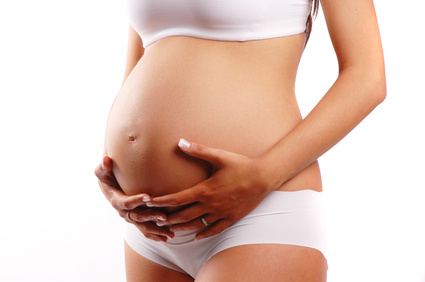
Note: I am not an expert in this field. I’m simply describing my experiences and what I remember having personally gone through the egg donation process. I try my best to give accurate information but if you have any doubts, contact an egg donation agency or physician that specializes in fertility treatment.
Sources
[1]"Why Should You Use an Egg Donor? Egg Donation, Legal Rights, and More." WebMD - Better Information. Better Health. Web. 24 July 2011. <http://www.webmd.com/infertility-and- reproduction/guide/donor-eggs-in-fertility-treatments>.
[2]"Ovarian Hyperstimulation Syndrome - PubMed Health." PubMed Health.gov. 27 July 2009. Web. 24 July 2011. <http://www.ncbi.nlm.nih.gov/pubmedhealth/PMH0004549/>.
Learn More about Egg Donation
- Egg Donation - Egg Donor FAQ
Answers common questions regarding the egg donation process. - Discovery Health "Egg Donation Process"
The egg donation process is complicated and occasionally risky. Learn how the egg donation process syncs the menses of donor and recipient. - The Genesis Group
An egg donation agency based in Los Angeles, CA.


